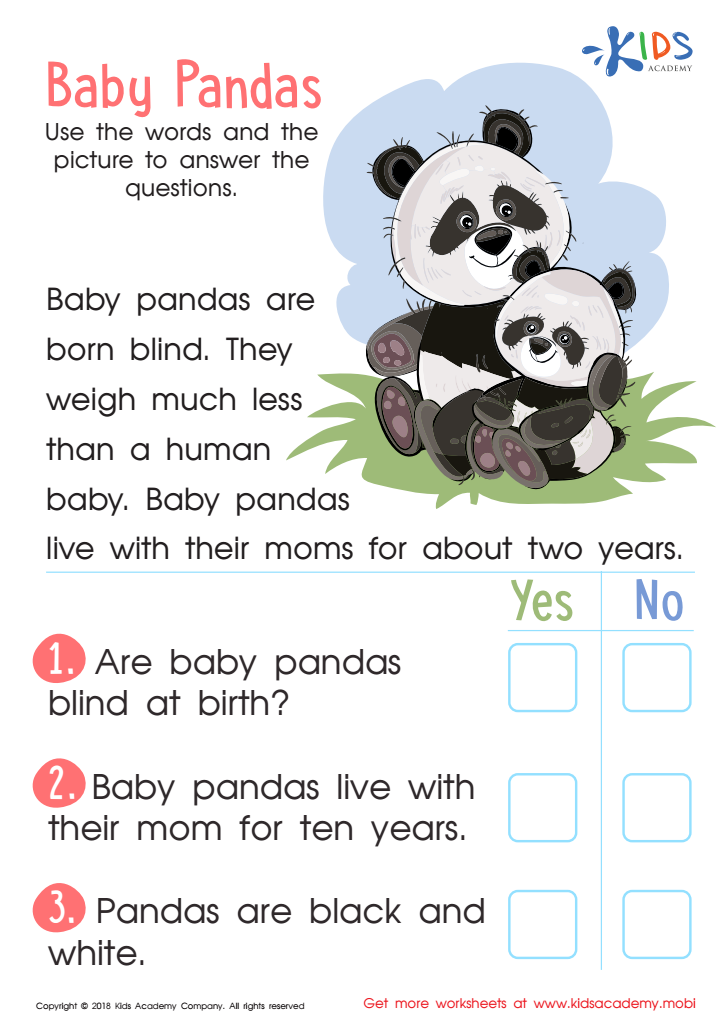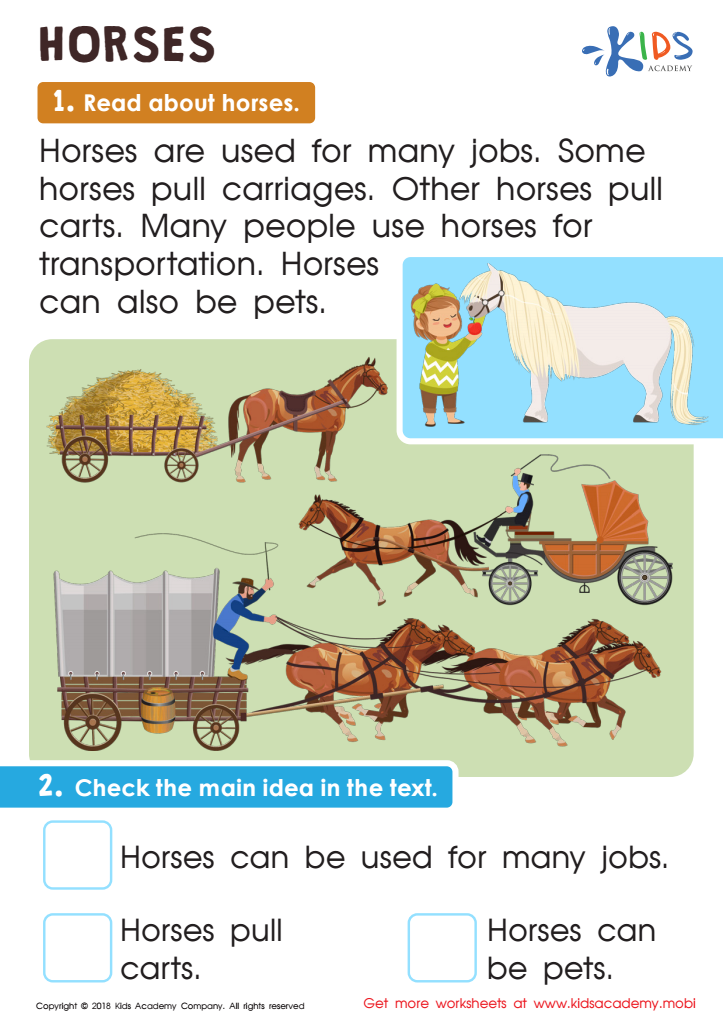Fine Motor Skills Reading Non-Fiction Worksheets
3 filtered results
-
From - To
Enhance your child's fine motor skills with our engaging Non-Fiction Worksheets designed specifically for early readers! These worksheets combine informative content with interactive activities, promoting an enjoyable learning experience. As children cut, trace, and manipulate, they develop essential fine motor skills that are vital for writing and everyday tasks. Each activity encourages focus and coordination while exploring a variety of fascinating non-fiction topics. Perfect for classroom use or home learning, our worksheets aim to support young learners in developing both literacy and motor skills simultaneously. Foster a love for reading and skill development with our thoughtfully crafted materials today!


More Octopus Facts Worksheet


Baby Pandas Worksheet


Horses Worksheet
Fine motor skills are essential for young children as they lay the groundwork for a variety of vital tasks, from writing to self-care activities. Understanding the significance of these skills in early education is important for both parents and teachers. When children engage in fine motor activities, such as cutting, drawing, or manipulating small objects, they improve hand-eye coordination and dexterity, which promotes confidence in their ability to perform practical tasks.
Additionally, developing fine motor skills directly influences academic success, particularly in literacy. As children learn to grip a pencil correctly, they enhance their writing abilities, which are crucial for expressing thoughts and academic performance in school. Improved dexterity not only contributes to better handwriting but also leads to greater focus and attention to detail when completing assignments.
Moreover, fine motor skills are linked to cognitive development; they encourage brain development by fostering problem-solving and critical thinking. By reading non-fiction about fine motor skills, parents and teachers can discover various activities and strategies to help children develop these necessary skills effectively. In turn, a strong foundation in fine motor skills supports overall learning, social interactions, and emotional growth, all of which are essential aspects of a child's educational journey.
 Assign to My Students
Assign to My Students




















